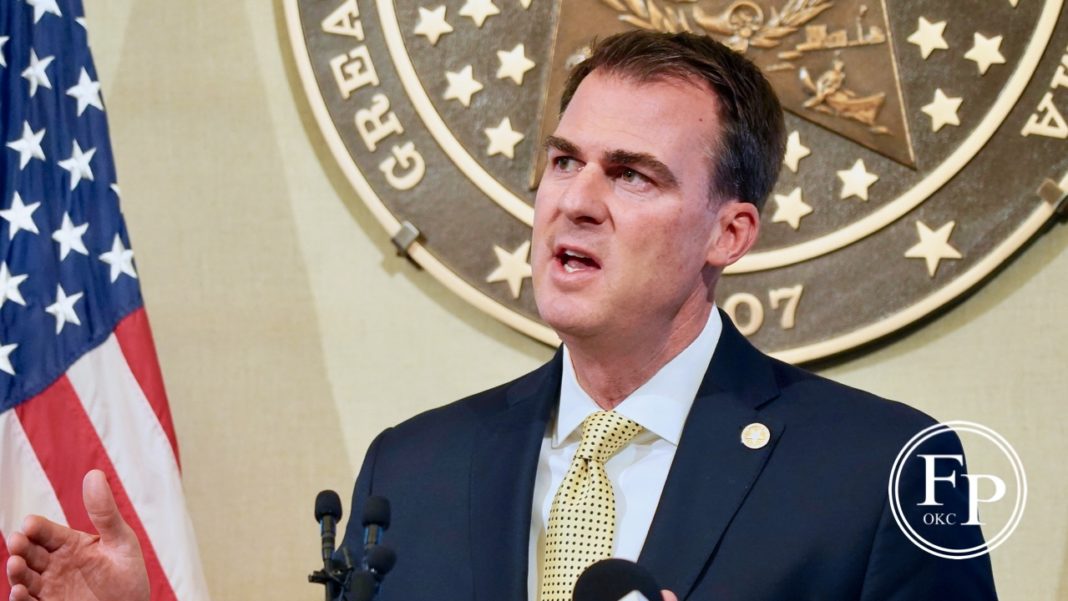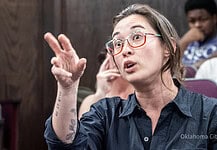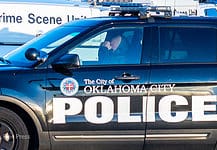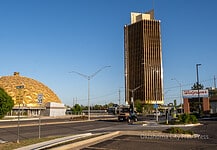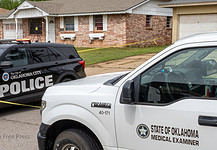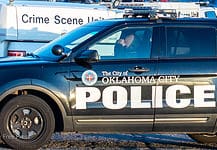Last Updated on May 7, 2020, 7:35 AM | Published: May 6, 2020
Wednesday Oklahoma Governor Kevin Stitt defended his appointment of a “PPE Czar” to acquire personal protective equipment (PPE) in response to the COVID-19 pandemic.
The appointment came after Stitt sidelined the experienced and trained Emergency Preparedness and Response Service within the Oklahoma State Health Department.
DeMarco’s qualifications
In response to questions in his news conference, Governor Kevin Stitt defended his selection of Gino DeMarco, the Tourism Department executive deputy director, who he tapped to be the “PPE Czar” in Oklahoma’s response to the COVID-19 pandemic.
He was asked about the qualifications of DeMarco to lead such a challenging medical supply effort. DeMarco’s background was in oil and gas before he joined the Tourism department in 2019 just months before the COVID-19 pandemic presented a series of complex and deadly problems for Oklahoma and the rest of the nation.
Stitt continues to defend placing DeMarco in charge of finding Personal Protective Equipment (PPE) for hospitals and first responders. He said that DeMarco had extensive experience in the private sector in the oil and gas industry and that he had “tremendous confidence in Gino.”
The Governor explained that there was competition from other states and even other countries for PPE.
“And so that’s when I wanted to put a czar in place that I knew would turn over every rock, turn over every stone, would scour the countries in the world for this much-needed equipment to keep Oklahoma safe,” Stitt said.
Emergency veterans sidelined
Free Press asked Stitt why he had sidelined the federally funded Emergency Preparedness and Response Service (EPRS), a part of the Oklahoma State Health Department.
That team had carried out pandemic response exercises just last fall and has extensive past experience in response to a wide range of public health threats including diseases.
The unit administered the state’s response to the H1N1 threat in 2009-2010, the Ebola threat in 2014, and the Zika threat in 2017.
They train to respond quickly to various threats to public health, even the ravages of Oklahoma’s famously unpredictable weather. A list of their past responses to crises is on the OSDH website.
“Total confidence” in DeMarco
Stitt responded that when they first became aware of the magnitude of the crisis, he met in the situation room in the Emergency Management Center with the National Guard and the Health Department. He asked about the supplies of PPE that were in the stockpile at that time.
“They had one day supply for the hospitals just in Oklahoma City,” said Stitt. “That was our strategic supply when I got here. That was not satisfactory to me. And Oklahomans wanted me to protect the health and lives and so I went a different direction. And I think we’ve done a really, really good job of getting that supplies out.”
Stitt added that “it’s easy to play Monday morning quarterback” about situations like that.
“But I have total confidence in the guys that I’ve got out there looking at both we have working together up here in the state of Oklahoma,” Stitt said.
Questions about response
Stitt’s handling of the sudden need for personal protective equipment (PPE) has come under scrutiny by Oklahoma Attorney General Mike Hunter who has requested State Auditor and Inspector Cindy Bird investigate purchases made outside the established ways of obtaining the equipment.
Gaining even national attention, Oklahoma spent $2 million to purchase hydroxychloroquine when the federal government gave other states their supply.
The drug was not designed or tested for the treatment of diseases like COVID-19. But, President Donald Trump publicly pushed the drug as a possible treatment when the drug had never been tested for that use.
Critics question if the Stitt administration made the purchase simply because the President thought it was a good idea.
Founder, publisher, and editor of Oklahoma City Free Press. Brett continues to contribute reports and photography to this site as he runs the business.
